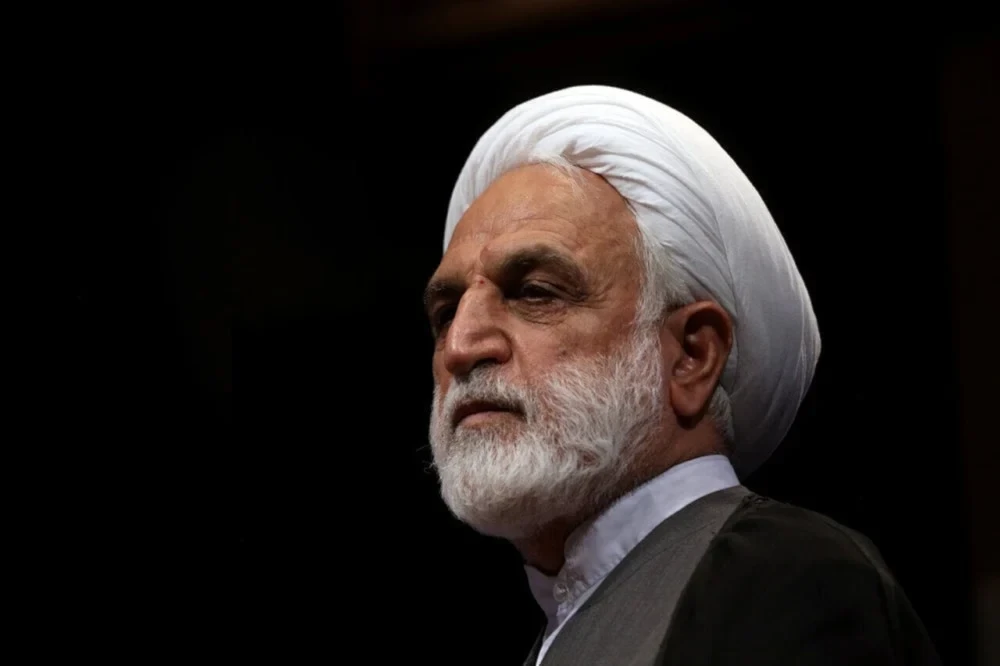Iran judiciary chief: 2,000 people detained following Israeli attack
Iran’s judiciary head says Israeli attack on Tehran failed due to leadership readiness and national unity, as Gaza war crimes reach peak.
-

Iran’s Judiciary Chief Gholamhossein Mohseni Ejei in an undated photograph
Iran’s Judiciary Chief Gholamhossein Mohseni Ejei confirmed on Monday that the Islamic Republic responded swiftly and decisively to the recent Israeli aggression, emphasizing that the leadership’s preparedness and public unity thwarted the goals woven by the Israeli occupation.
In an interview with Iranian state television, Ejei revealed that Supreme Leader Sayyed Ali Khamenei issued immediate orders following the Israeli attack, including appointing replacements to ensure that state functions continued without delay.
“Matters were handled quickly,” Ejei said, noting that the Iranian leadership held multiple high-level meetings as scheduled in the wake of the attack.
'Israeli objectives failed'
Ejei said the Israeli regime's attempted strike, including its targeting of Evin Prison, was aimed at provoking internal instability and security chaos, but failed to achieve any of its goals. “The enemy’s plans were foiled thanks to the wisdom of Iranian leadership and the cohesion of the people,” he stated.
He also reaffirmed that Iran was not the aggressor but responded firmly and in line with its right to self-defense. “Iran did not start the war,” Ejei said. “But it responded with determination to the attack.”
Commenting on the security incidents that followed the Israeli aggression, Ejei reported that around 2,000 people had been detained, though many were later released after preliminary investigations found no evidence of involvement in hostile activities or collaboration with foreign powers.
Israeli crimes in Gaza at their peak
Turning to the situation in Gaza, the Judiciary Chief condemned what he called “the peak of Israeli crimes” over the past 20 months, stressing that the Israeli occupation continues to commit atrocities against Palestinians in the besieged Strip.
“These crimes are ongoing,” Ejei said, as the Israeli war on Gaza surpasses its 20th month, with mounting Palestinian casualties and no end in sight.
Measured retaliation
The confrontation began on June 13, when the Israeli regime carried out unprovoked strikes on Iranian nuclear and military sites, a move widely condemned by Tehran as a blatant act of aggression.
Iran's response was swift, precise, and unprecedented: waves of missiles and drones targeted Israeli intelligence hubs, military compounds, and strategic infrastructure. Despite Tel Aviv's advanced defense systems, a significant number of projectiles reached their targets, forcing even Israeli officials to admit to extensive damage.
According to figures published by the occupation's own Finance Ministry, the war inflicted over 10 billion shekels (approx. $3 billion) in direct losses, excluding the cost of replenishing defense systems.
Israeli Finance Minister Bezalel Smotrich estimated the total burden could climb to $12 billion, at a time when "Israel" is already economically strained by years of military aggression. Even US President Donald Trump acknowledged the scale of destruction, remarking, "Those ballistic missiles, boy, they took out a lot of buildings."

 4 Min Read
4 Min Read









